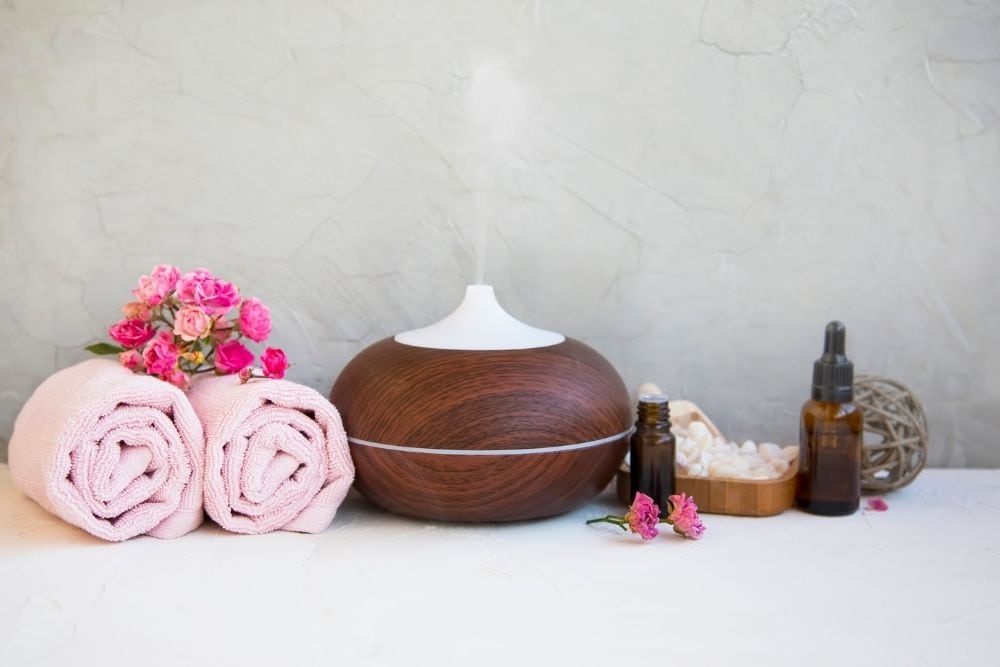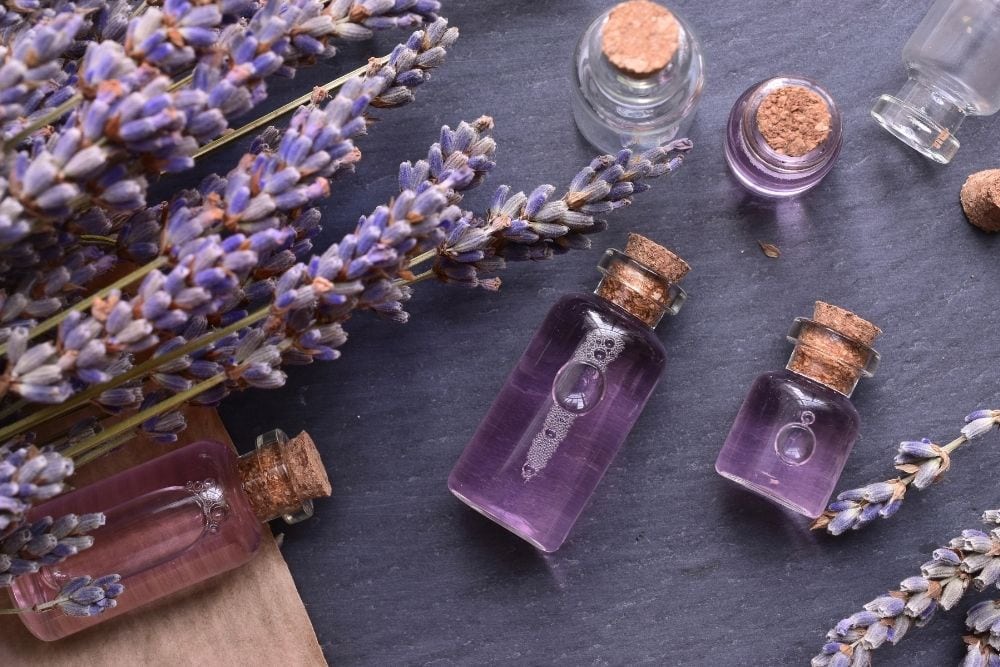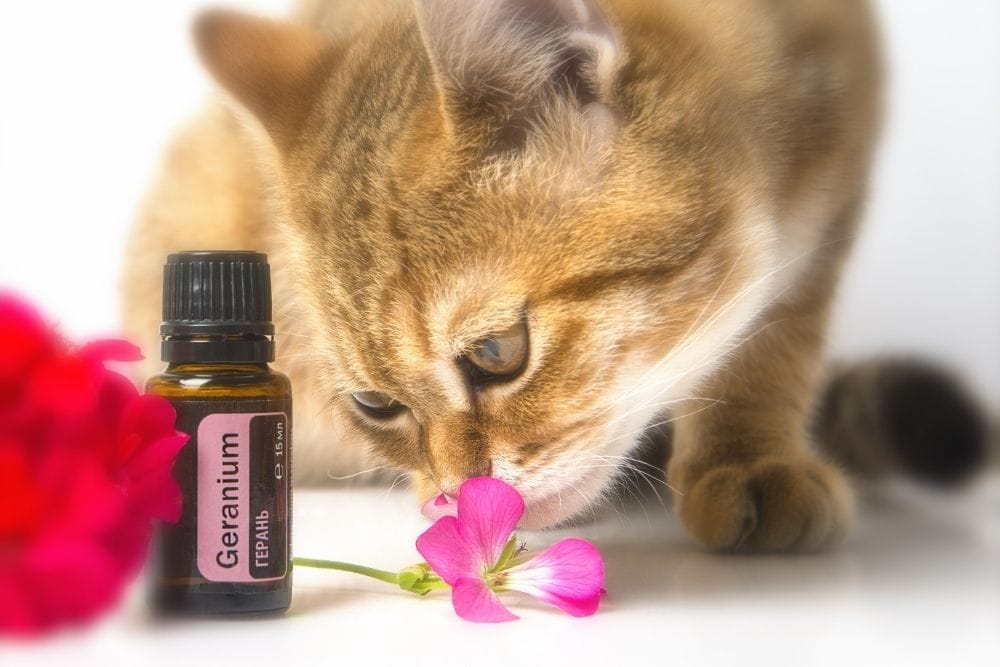Diffusing essential oils is generally a very healing practice. It can help with anxiety, clear sinuses, and soothe you to sleep.
Unfortunately, an oil that does nothing but heals you might be toxic for your cat. Cats react very differently to some essential oils, so it is incredibly important that you pay attention to what oil you diffuse around your pet.
The potential side effects of using an unapproved oil around your cat can be incredibly dangerous. As many cat owners probably already know, cats are incredibly sensitive creatures.
Keep reading to figure out ways to continue enjoying the benefit of oil diffusing without putting your furry best friend at risk!
Contents
Yes! You Can!
You can definitely enjoy your diffuser if you have a cat. While having a diffuser running won’t necessarily help your cat, it will most certainly help you!
After all, a happy parent is a great first step to a happy furbaby.
Safe Essential Oils for Cats
We’ve gone over several oils to keep away from your cat, but which ones can you use liberally?
Here are a few safe essential oils to diffuse around your cat:
If none of these oils sound like your thing, you can always look into a specific oil you have that you want to use around your cat.

It is also important to note that ‘safe’ and ‘beneficial’ cannot be used interchangeably when talking about cats and essential oils. If your cat is sick, you should always take it to the doctor. Do not use essential oils as a medical remedy.
There are also brands that have pet safe lines, however, be sure that the brand specifically lists that the oil or blend is safe for cats. Dogs have a higher tolerance for essential oils so just because something is safe for your puppy does not mean it’s also okay for your kitten.
Why Are Essential Oil Dangerous for Cats?
It’s no secret that essential oils are incredibly concentrated. Humans can inhale them without any side effects but cats take in oils quicker and more intensely.
Oils are absorbed orally and through a cat’s skin — then it hits the liver. This is where the real problems begin.
Unlike humans, cats don’t have a very important enzyme in their liver that helps metabolize and clear the system of toxic substances. This means that cats can flush out any essential oil toxins.
Phenols and phenolic compounds, which are used in rubbers, plastics, petroleum, and pharmaceuticals, are also found in some essential oils. Because of the previously mentioned missing enzyme, cats are incredibly sensitive to these compounds.
Consumers always look for the purest essential oils on the market, however, cats will respond worse to more concentrated oils because a purer oil means a higher concentration of substances they cannot metabolize.
Why Diffusers are Dangerous
Diffusers are dangerous for cats since inhaling the oil mist will cause respiratory irritation. You also have to keep in mind that cats lick themselves, so any droplets on their fur will eventually end up in their mouth when they have one of their 50 tongue baths a day.

It is nearly impossible to keep your cat from ingesting or inhaling essential oils when in a room with any diffuser, this includes reed diffusers, candle diffusers, or any other method that releases the scent and droplets into the air.
Harmful Essential Oils for Cats
Having a cat when you use essential oils is like having a child with a peanut allergy. You have to read the ingredient lists of everything and make sure you keep their allergen as far away from their mouth and skin as possible. The only difference is children aren’t constantly licking themselves (hopefully).
There are quite a few oils to keep far away from your furbaby.
Here are a few essential oils to never diffuse around your cat:
- Wintergreen
- Oil of Sweet Birch
- Citrus Oil (d-limonene)
- Pine Oils
- Ylang Ylang Oil
- Peppermint Oil
- Cinnamon Oil
- Pennyroyal Oil
- Clove Oil
- Eucalyptus Oil
- Tea Tree Oil
- Bergamot Oil
- Sandalwood Oil
- Thyme Oil
- Lavender Oil
We also recommend researching a new oil before diffusing it around your cat. It’s always better to take a couple of minutes extra in your diffusing routine rather than spend far more time tending to a poisoned cat.

While some sites confidently state that lavender oil is perfectly safe for cats, many insist it is not. It’s better to be safe and sorry when it comes to poisoning your cat, so we highly recommend you steer clear of lavender when your furry felines are around.
How To Use Toxic Oils Safely
If you really really want to enjoy your tea tree oil, diffuse it in a room for a short period of time. Make sure that your cat cannot get into the space and let the room breathe with the windows open for a bit after you’re done diffusing.
The key is to make sure no loose droplets are floating around by the time your cat comes into the previously diffused room. We recommend giving a room an hour or two of open-window breathing time.
If you’ve been diffusing a toxic oil for an entire day, you will want to give the room much more time before letting the cat back in. Can you smell even a hint of oil in your space? If the answer is maybe or yes, your cat shouldn’t be in there.
Potential Side Effects
Now you know what oils to keep away from your cat, but what if what shouldn’t happen does, and your cat comes in contact with a toxic essential oil?
There are a few symptoms to look out for according to the Pet Poison Helpline:
- Drooling
- Vomiting
- Shaking
- Watery eyes/nose
- Coughing
- Loss of balance
- Respiratory distress
- Low heart rate
- Low body temperature
- Liver failure (this will be difficult to see but is a very serious symptom of essential oil poisoning)
If your cat starts having any of these symptoms, or if you think you might have exposed them to any toxic oil, move them to a clean room with the windows open. You should call a doctor if their symptoms do not quickly resolve.
The Pet Poison Helpline also does a great job distinguishing between a cat coughing up a hairball and a cat trying to vomit. Unlike a cat with a hairball, a vomiting cat will have little to no abdominal movement while it’s crouched low on the ground.
These all sound very scary, but don’t worry! As long as you’re mindful of what oils you use around your cat, you will be alright.
There are plenty of cat owners who regularly enjoy essential oils in their homes without poisoning their beloved feline friends. It’s also better to know what scary things to look out for and be prepared for them, rather than get caught off-guard by a reaction.
What About Other Pets
Let’s touch on other pets since they are a lot more easygoing with essential oils than cats are.
Dogs
Here are essential oils that are safe to diffuse around dogs:

- Cedarwood Oil
- Chamomile Oil
- Citrus Oils (including lemon oil and orange oil)
- Eucalyptus Oil
- Fennel Oil
- Frankincense Oil
- Helichrysum Oil
- Lavender Oil
- Lemongrass Oil
- Certain Mint Oils (peppermint, spearmint)
- Rose Oil
Here are essential oils that are NOT safe to diffuse around dogs:
- Cassia Oil
- Cinnamon Oil
- Clove Oil
- Oregano Oil
- Pennyroyal Oil
- Pine Oils
- Sweet Birch Oil
- Tea Tree Oil
- Thyme Oil
- Wintergreen Oil
You can see that dogs can use a lot more essential oils than cats can. This is because dogs don’t groom themselves as cats do. They also have a stronger liver that can metabolize essential oils and clear their system of toxins.
Fish
You should avoid using essential oils near your aquarium. If oil droplets get into the water of your fish tank, your fish will swallow the oil and it will poison them.
While there have been some studies to suggest some plant oils may be beneficial for fish, we do not recommend experimenting with them. If you think essential oils might help your fish, you should talk to your vet before trying to put your little swimming friends in contact with the highly concentrated oils that even humans need to avoid ingesting.
Keep Your Furbaby Safe
Pets are integral parts of our lives. They bring us joy, keep us company, give us cuddles and make many of us complete.
While the benefits of essential oils are enticing, they should never be enjoyed if the health of your cat might be compromised in the process.
The good news is, there are other ways to have essential oils in your life without a diffuser. You could add them to your bathwater (diluted with a carrier oil), or make an essential oil pillow if your cat doesn’t sleep with you.
Always double-check what oils are safe for your furbaby. This is especially important for oil blends that may have a sneaky toxic oil hidden in the ingredients list.
We know you love your pet and will do all in your power to keep their cute fluffy bodies safe and sound.
Happy Oiling!

I currently work as a medical receptionist, but my ultimate goal is to work as an occupational therapy assistant. Helping others achieve a better quality of life is something I’m after. That’s one of the main reasons I started this blog. Learn more about me.
